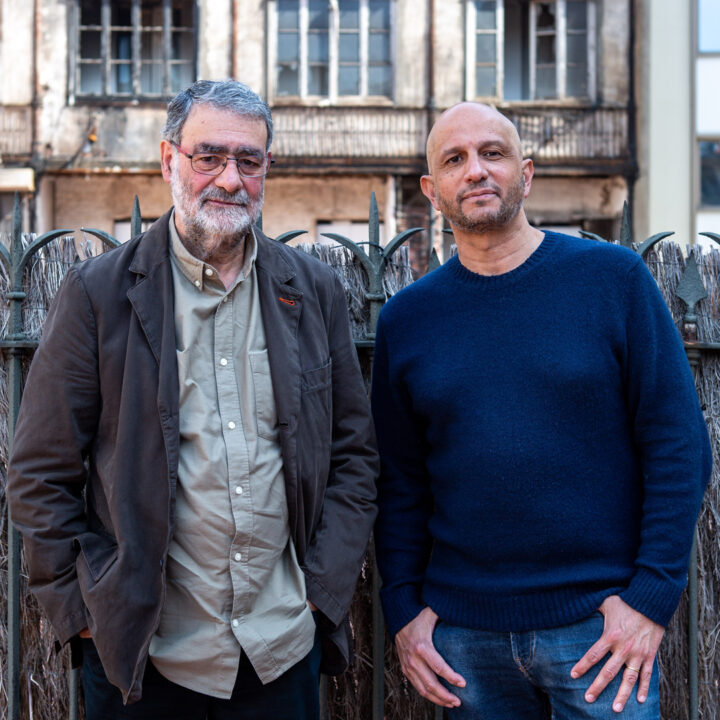The writer and journalist Jorge Carrion is the coordinator of the editing of the catalog of the Museum of Forbidden Art, and last Saturday, March 16, we hosted on the museum’s terrace a conversation between Carrion and the artist Joan Fontcuberta, for talking about the catalog that features texts by Joan Fontcuberta, Graciela Esperanza, Boris Groys and Tatxo Benet himself, among others; but they also went over other issues such as the different forms censorship, self-censorship and curatorial criteria can also be read as forms of censorship.
As an artist I am interested in the forms of censorship, censorship has a lot to do with the relationship of the work, with the place and the time, not so much with the work itself,” said Fontcuberta, whose Deletrix series is part of the collection. A statement that Carrión shares: “censorship is contextual”.
Fontcuberta, who with Pilar Rosado has elaborated Beautiful agony, a study of orgasm with the algorithm that explains facial features and can be seen in Berlusconi, Trump, Starus Kahn, the king emeritus… is an expert in deep fake technology.

Another of the concepts that were raised is to see bookstores as a space of political resistance. Carrión, who is the author of the book Librerías, where he devotes a chapter to censorship, is convinced that to be a good censor, it is necessary to be a good reader. And he recalled that Hitler felt he was a writer and gave Mein Kampf as a gift when people got married. Mao was a bookseller before making the revolution… “Imagine which was the only dictator who was not a writer… ours”.
In line with these arguments Fontcuberta wanted to remember that “where books are burned, people will soon be burned. The artist Fahrenheit and blibliocide are themes that have always interested him, because “Bradbury’s book is a model of a dystopian society where the book is essential because it generates knowledge and critical thinking. Burning libraries in wars is a cliché practiced by the victors to eliminate cultural roots”.

Both think that the forms of censorship become more sophisticated as new technologies appear. And the meeting ended with a vindication of paper media and a warning about the demiurgic role of Google: “when we use Google, search engines of private corporations seeking profits are activated and this responds to certain interests. Basing our knowledge on these systems is practical but has toxic repercussions, said Joan Fontcuberta.
“The commercial imperative has become a kind of self-censorship. Google is an advertising company,” remarked Carrión.

